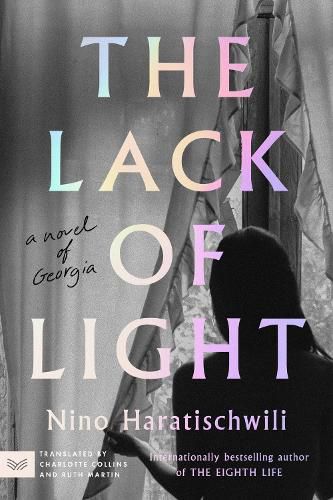This month we're reading fiction translated from: Korean, German, Japanese and Swedish.
The Midnight Timetable
Bora Chung, translated from Korean by Anton Hur
From the author and translator of the National Book Award finalist and Booker Prize shortlisted Cursed Bunny, comes a new novel-in-ghost-stories, set in a mysterious research centre that houses cursed objects, where those who open the wrong door might find it’s disappeared behind them, or that the echoing footsteps they’re running from are their own …
The acclaimed Korean horror and sci-fi writer’s goosebump-inducing new book follows an employee on the night shift at the Institute. They soon learn why some employees don’t last long at the centre. The handkerchief in Room 302 once belonged to the late mother of two sons, whose rivalry imbues the handkerchief with undue power and unravels those around it. The cursed sneaker down the hall is stolen by a live-streaming, ghost-chasing employee, who later finds he can’t escape its tread. A cat in Room 206 reveals the crimes of its former family, trying to understand its own path to the Institute’s halls.
Read our staff review here.
Frankie
J.M. Gutsch, Maxim Leo, translated from German by Christine Bredenkamp
Meet Frankie the cat. He's a stray who belongs to no one, and that's just how he likes it. Until one day, everything changes. He crosses paths with Richard.
Richard isn't doing so well. Grieving the loss of his wife, he's turned his back on hope and is ready to end it all. But his plans are halted when Frankie the cat is injured on his doorstep.
Frankie needs help. But then, so does Richard. What Richard doesn't know is that Frankie is no ordinary cat. It's an unlikely partnership. But it might be exactly what they both need.
The Lack of Light: A Novel of Georgia
Nino Haratischwili, translated from German by Charlotte Collins & Ruth Martin
They are four, as different as can be: the romantic Nene, the clever outsider Ira, the idealistic Dina, and the sensitive Keto. Inseparable since childhood, they grow up together in an old Tiblisi courtyard, in Georgia, at a time when the Soviet Union is crumbling and the future of their country is in question. Each in her own way experiences love, hope, and disappointment as local mob wars, romance, and civil war threaten to swallow up their worlds. Rising to challenges both personal and political —a first love that can only blossom in secret, violent street skirmishes, a ravaging drug epidemic—the four women’s friendship seems indestructible, until an unforgivable act of betrayal and a tragic death shatter their bond.
Decades later, the three survivors reunite at a major retrospective of their late friend’s photography. The pictures on display tell the story not only of their country but also of their friendship, and, confronted by them, Nene, Ira, and Keto relive their staggering loss. Then, unexpectedly, something new is glimpsed, and forgiveness seems within reach.
Like the International Booker Prize nominated The Eighth Life before it, Nino Haratischwili’s The Lack of Light is an emotionally bold, decades-spanning epic in which to lose yourself, brought to life by the vibrant colors of Georgia's culture and its people. It is a glorious book readers will return to again and again.
The Amberglow Candy Store
Hiyoko Kurisu, translated from Japanese by Matt Treyvaud
A charming book of linked stories with a sprinkling of cosy fantasy and a fable-like touch.
The Amberglow Candy Store introduces the reader to half-fox shopkeeper Kogetsu, whose magical wagashi sweets from his shop on Gloaming Lane promise to change his customers' lives for the better.
We follow an array of characters from various walks of life through their encounters with Kogetsu, who himself learns some major life lessons along the way, and reveals his own backstory in the process.
Summer at Mount Asama
Masashi Matsuie, translated from Japanese by Margaret Mitsutani
The Japanese novel comes of age in this gripping story of love, art and life as a group of architects competes to design the new National Library of Modern Literature in Tokyo.
In 1980s Japan, newly-graduated Toru Sakanishi joins a small, prestigious architecture firm founded by a former student of Frank Lloyd Wright. As the sweltering summer months approach, the team migrates from the bustling centre of Tokyo to the beautiful rural surroundings of Mount Asama, where several love stories are woven together and Sakanishi encounters four remarkable women who change the course of his life.
From honouring ancestors to illustrating the complexities of the living, Summer at Mount Asama is a prize-winning novel beautifully translated by National Book Award winner Margaret Mitsutani, offering a moving and elegant portrait of the clash of modernity and tradition.
Engagement
Gun-Britt Sundström, translated from Swedish by Kathy Saranpa
Martina and Gustav, students in 1970s Stockholm, meet and fall immediately into coupledom. But what is coupledom? A route to marriage? A declaration of co-dependency? A new dimension of commitment and responsibility? A sexual confrontation? Or is it a habit that an intelligent person must consider breaking? Martina and Gustav discuss their relationship endlessly, between themselves and with others, as they try to make it work.
Engagement, set during a time of social change and political upheaval, sees Martina trying to engage with the world on her own terms. Unwilling to marry, she finds herself in a state of permanent engagement while her friends settle down to marriage and children; uncertain of the world's future, she engages with demos, sit-ins and philosophy seminars in her quest for a new blueprint for joy. First published in 1976, when it was heralded as an instant classic, Engagement remains as relevant, hilarious and heartbreaking today.








